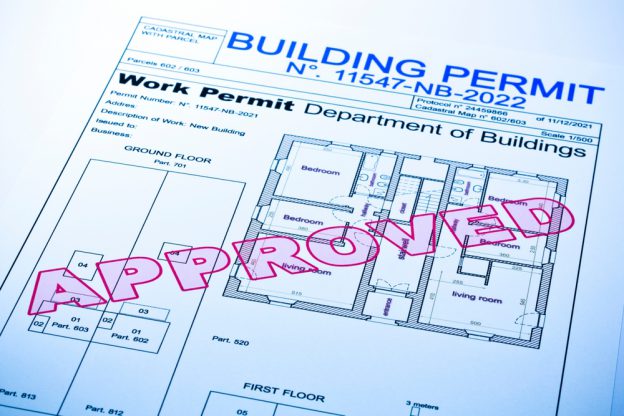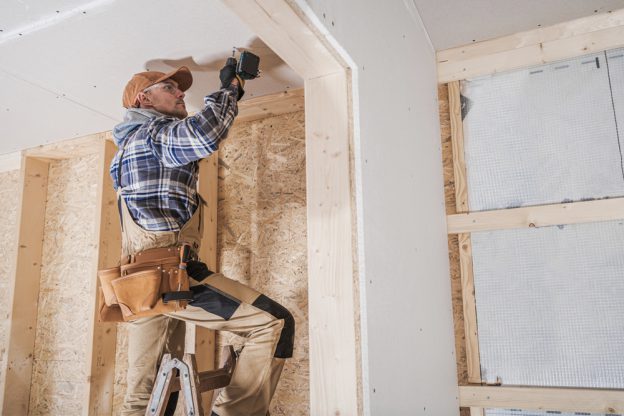As a contractor in California, knowing the ins and outs of how to handle deposits for your construction projects is an utterly crucial skill.
First of all, a deposit is a legal obligation on most projects, but beyond that, deposits serve as an essential mechanism of the construction process that functions as a shield for both the contractor and the client.
But how do deposits work? Do you need a deposit on your construction project? How do you go about determining and handling deposits? Let’s find out.
What is a Deposit?
A deposit in any industry is a guarantee of work. It’s a legal mechanism that is designed to encourage good faith agreements between both parties.
In practice, a deposit functions by a client and the service provider agreeing on a small percentage of the total project cost that is paid upfront. Usually this is a small amount – like 10-15% of the total project cost.
This amount protects the homeowner by ensuring they don’t spend a huge amount of money on a service provider that doesn’t provide the service they agreed upon. It also protects the service provider by ensuring that they are monetarily rewarded for taking on a project – even if the client ultimately backs out of seeing the project to completion.
In this way, deposits benefit both parties. Clients feel safe that they’re not losing a big chunk of money on an unscrupulous provider, while service providers know they are going to be paid at least a small amount for the work done on the project.
Deposits encourage good faith bargaining between both parties, creating a safety net to protect both parties’ interests.
How Deposits Work in Construction Projects
When it comes to construction, deposits are relatively straightforward. These are assurances guaranteed ahead of time, usually with a percentage of the entire project being paid to the contractor even before the first trench is dug or the first nail is hammered.
The size, scope, and payment terms of a deposit are influenced by the scale and nature of the project. Smaller projects have more flexibility with a deposit, while larger projects involving multiple contractors or firms may have multiple layers of deposits overlapping at the same time.
A deposit not only protects contractors against nonpayment by clients but it also ensures that initial startup costs – like materials and labor – can be paid for to get the ball rolling. Deposits, then, also function as early funding on a project to make sure it can get completed on time.
In construction, a deposit is a preliminary payment made by the client to the contractor, or by the general contractor to the subcontractor.
Legal Requirements for Deposits in California
When it comes to the legal requirements in the state of California, there’s a number of different frameworks for deposits, spanning the various areas of construction, various levels of complexity, and the various stages of a project.
The General Legal Framework For Construction Deposits In California
- Home Improvement Projects: Home improvement projects are one of the few areas of construction that have stringent contractual obligations set forth by the CSLB. California limits deposits for home improvement contracts to $1,000 or 10% of the project cost, whichever is less. This is a hard-and-fast rule that cannot be circumvented.
- Commercial Projects: Unlike home improvement projects, there is no specific legal cap on deposits for commercial construction projects in California. It’s up to the individuals and businesses involved in commercial construction to determine their own deposits.
- Other Projects: Like commercial projects, there are no deposit requirements for other types of construction projects, like municipal or large-scale infrastructure projects, which are often defined by specific contract terms, government regulations, or funding agreements.
Contractual Requirements
- Progress Payments: California law mandates that contracts must detail the schedule of progress payments, clearly outlining each phase of work, services provided, and associated payment amounts – including deposits! Contractors cannot legally collect payment for work not completed or materials not delivered. However, they can require a downpayment, which is just another term for a deposit!
- Change Orders: The law requires that any extra work or change orders be documented in writing and signed by both parties before commencement. This documentation should include the scope, cost changes, and impact on the payment schedule.
Mechanics Lien Warning
A crucial aspect of the contract is the mechanic’s lien warning, which works hand in hand with a deposit to ensure that a project is completed according to the contract.
A Mechanics Lien warning informs clients about the potential for liens against their property by unpaid subcontractors or suppliers, despite full payment to the prime contractor. It emphasizes the importance of preliminary notices from subcontractors and material suppliers.
Check out our article on contractor’s liens, and mechanic’s liens for California contractors for a deeper dive into these legal mechanisms.
Responsibilities and Consequences
Compliance with Deposit Limits
Contractors must comply with the deposit limits and progress payment regulations. Failure to adhere to these rules can lead to legal consequences, including disputes and potential litigation.
There’s only one legally enforceable deposit limitation in California – home improvement contractors cannot demand more than $1000 or 10% of the project cost, whichever is less. In this case, the State of California can hold the contractor legally liable for overstepping this law.
All other instances of deposits in the construction industry are not a civil, not criminal liability – which means it’s up to the individual or business to take the issue to court to receive compensation.
What Happens If You Don’t Have A Deposit?
If you don’t have a deposit on your construction project, you may or may not be in big trouble.
If you don’t have a deposit, you’re not legally in trouble, but you put yourself at significant risk of eating some serious costs without one. Without a deposit, the client can simply cancel the project at any time and you have basically no way to get your money back for things like materials and labor.
The reality is that you should not take on any construction project, no matter how big or small, without a deposit. It exists to protect you and the client, so there’s really no reason not to include one.
So…Do I Need A Deposit To Do Construction?
Do you need a deposit?
Yeah, you do. We can say that any contractor working in any industry, niche, or area of expertise in California should have a deposit in every single contract they sign with a client.
At the end of the day, there’s absolutely zero reason not to. It provides clarity to both the client and the contractor, while also protecting both parties financially in the case of non-fulfillment of a contract for a construction project.
It’s simply a no-brainer – get some money upfront and protect your business from losses!









